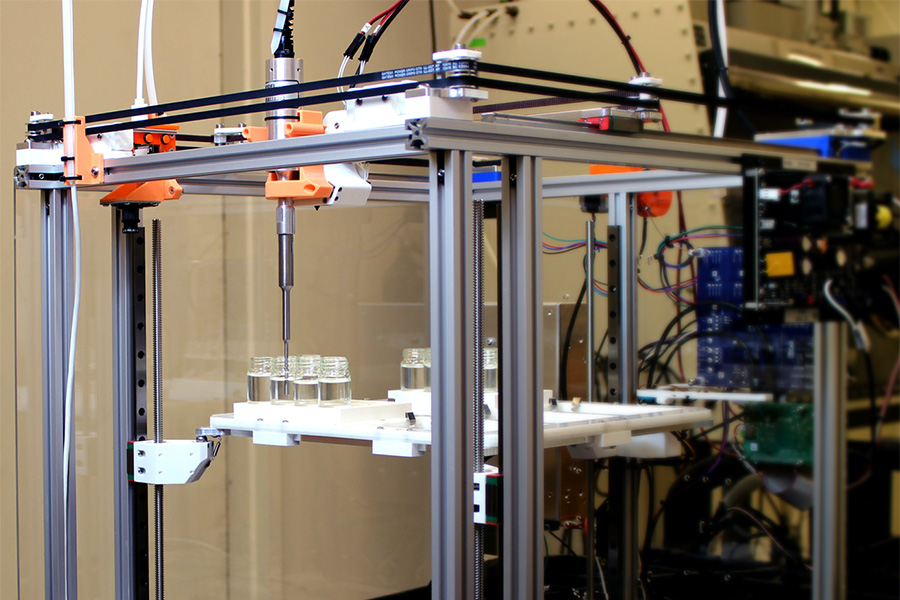AMP students can choose to specialize in a thematic research area, e.g. biomaterials, structural materials, etc. To get a sense of the breadth of elective courses and specialties available to you, check out our course catalog.
Three example tracks – Accelerated Materials Development, Advanced Aerospace Materials and Quantum Materials – are outlined below.
Accelerated Materials Development

Advancements in air and space travel, in renewable energy and energy storage, in transportation and electrical vehicles production, and in computing tools all greatly depend on the discovery and production of new materials. Materials development and innovation has traditionally required a long design process that often extends over decades from initial discovery to implementation. Our society and industry need faster discovery and development of new materials and a rigorous and modernized workflow in the design process. The development of new characterization methods, emerging new fields, such as data science, AI, quantum computing, computational simulation, and automation provide us the opportunity to accelerate this process. To enable the next generation of materials researchers and engineers to harness these new technological tools, and better prepare them for this faster pace of materials development, we are offering a new course track focused on “accelerated materials development”.
This track aims to provide students with knowledge and skills in data science, machine learning, materials and devices modeling, accelerated experiment design process, combinatorial robotic synthesis and high throughput measurement driven by AI/ML.
Most of the courses in this track will be taught with hands-on components to provide students systematic training on how to utilize these new techniques towards expediting the research and development of materials. Many of the courses in this track will be offered with an asynchronous option to provide access to the content to a wide audience.
Sample electives
Advanced Aerospace Materials

The new generation of advanced composites, high-temperature ceramics and light metals are transforming the aerospace industry. This materials evolution has resulted in accelerated developments in both design practice methodologies and process development. In addition, novel automated processing methods, the greater use of Integrated Product Development Teams (IPDT), and the so-called Industry 4.0 transition are being incorporated to reduce risk and cost, shorten production cycle times, and improve quality. These topics require specialized training to better prepare aerospace engineering students for dynamic careers in this industry and increase their understanding of the complexities associated with the latest generation of high-performance materials, advanced composites in particular.
This course track aims to train the next generation of aerospace engineers and enable them to provide leadership in all levels of technology readiness involving advanced materials. Through this track, students will be transitioned into well-rounded and practice-minded engineers, fully capable of innovatively addressing the challenges of advanced materials in industry.
Quantum Materials

As the growth of silicon-based technologies inevitably faces a bottleneck, the discovery, synthesis, characterization and understanding of new materials becomes critically important. These new materials will address a broad set of grand challenges spanning the study of fundamental science to improving quality of life. Quantum materials are emerging candidates to address these challenges and have been the subject of intense research in recent years. The family of quantum materials broadly encompasses materials in which quantum effects manifest over a wide range of energy and length scales, and many of them derive their properties from reduced dimensionality. These materials hold the potential to transformatively impact society, serving as platforms for revolutionary applications in energy, communication, information storage, scalable quantum computing, and artificial intelligence.
This course track aims to provide students with knowledge and skills in synthesis, characterization and modeling of quantum materials, and their application in energy harvesting and storage, quantum sensing, quantum computing and quantum information science.